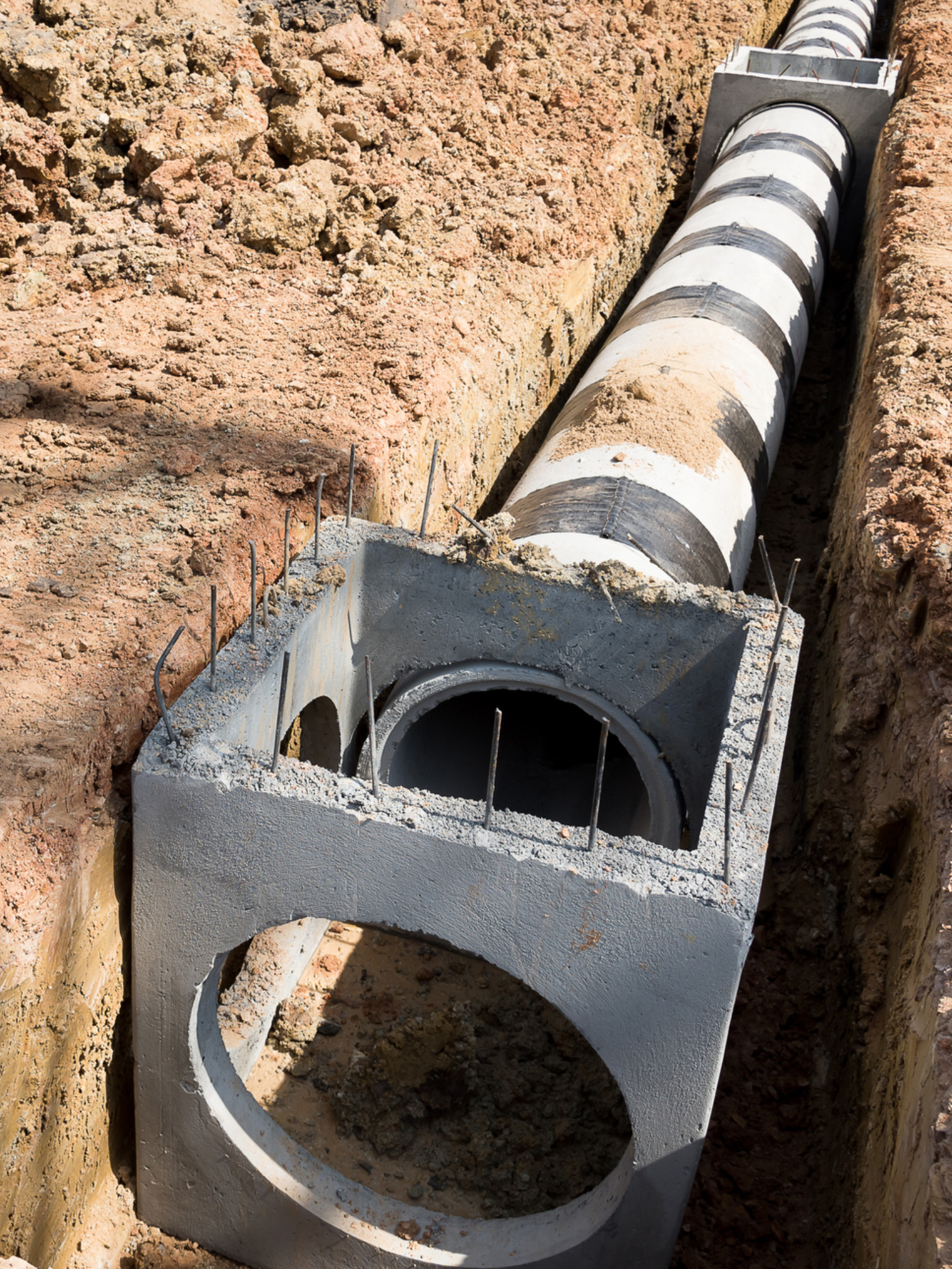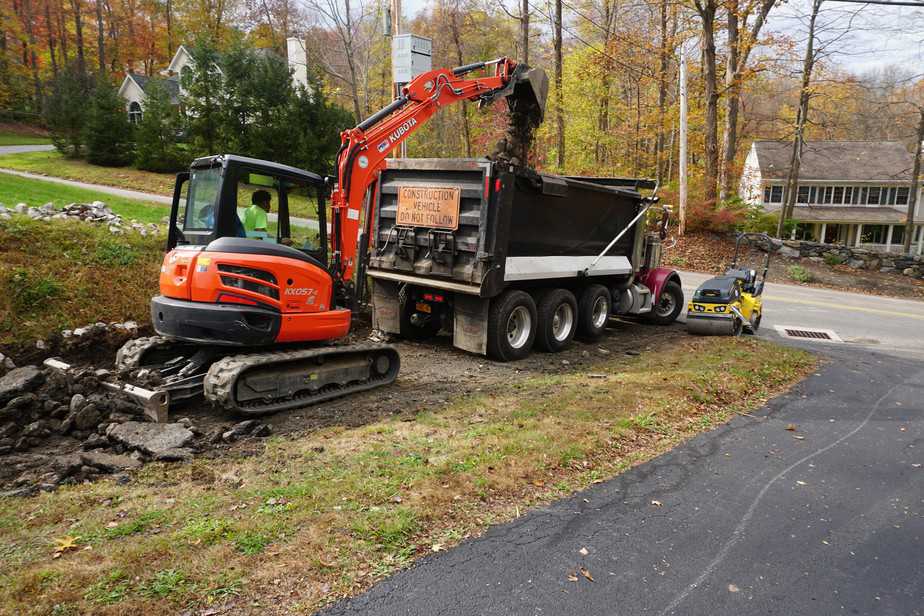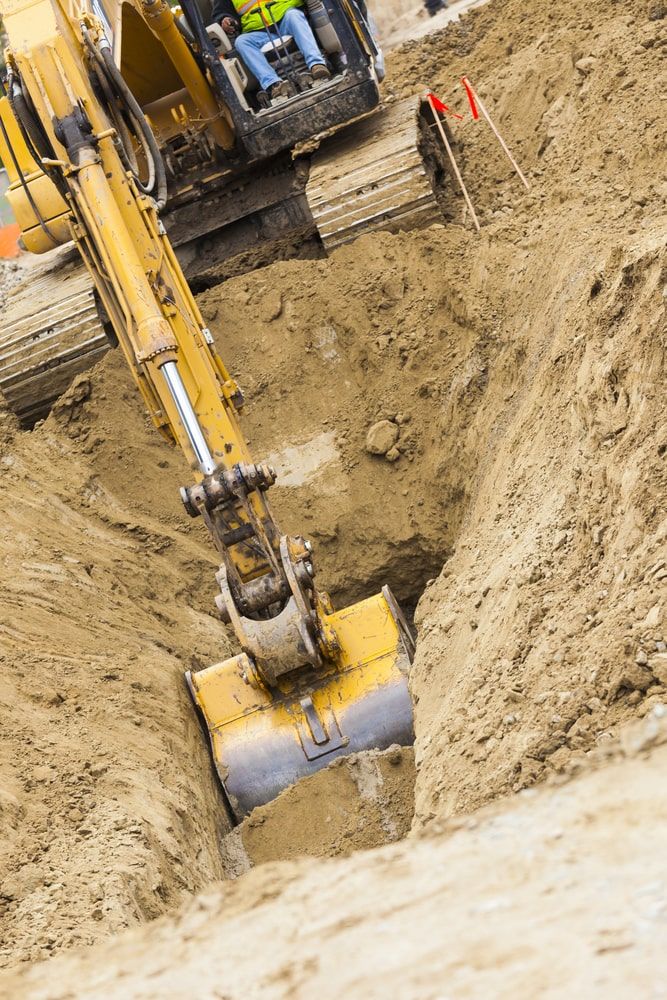Cost Effective Lancaster Excavation - High Quality Excavation at Competitive Prices
Cost Effective Lancaster Excavation - High Quality Excavation at Competitive Prices
Blog Article
Comprehensive Excavation Approaches: Understanding the Fundamentals for Success
In the world of building and civil engineering, the relevance of reliable excavation techniques can not be overstated. The mindful planning, accurate implementation, and meticulous interest to information required in excavation jobs require a comprehensive approach that incorporates numerous fundamental elements. From preliminary dirt analysis to the application of precaution and routine progression monitoring, mastering these core aspects is vital for attaining success in any excavation venture. The true mastery exists not just in understanding these principles yet in flawlessly incorporating them to browse the intricacies of excavation projects with skill.
Comprehending Excavation Job Planning

Successful excavation tasks are constructed on the foundation of meticulous and thorough preparation. The initial stage of any kind of excavation project is the preparation stage, where essential choices are made that can significantly influence the outcome of the job. During this stage, it is crucial to collect all pertinent information regarding the website, including topographical surveys, dirt composition, and any prospective threats that might exist. Recognizing the task spending plan, scope, and timeline constraints is important for developing a comprehensive excavation plan that makes sure the task's success.
One trick element of excavation project preparation is the advancement of a detailed timeline that lays out the sequence of deadlines, tasks, and milestones. By thoroughly considering all these aspects throughout the planning stage, excavation tasks can be performed successfully and effectively, leading to effective outcomes - excavating ohio.
Dirt Analysis and Site Analysis
Conducting complete dirt analysis and site analysis is an important action in the preparation phase of any excavation task. Soil analysis entails determining the composition, structure, and residential or commercial properties of the dirt at the excavation website. This information is critical for understanding the soil's bearing capability, moisture web content, and potential for erosion, which are vital aspects in establishing the excavation methods and devices needed for the project.
Site assessment goes beyond dirt analysis and includes a wider evaluation of the general website conditions. This assessment includes determining any type of prospective threats, such as underground energies, environmental concerns, or unsteady terrain, that might affect the excavation procedure. By completely assessing the site, job managers can establish effective excavation techniques that prioritize safety, efficiency, and environmental management.
Using sophisticated modern technologies like ground-penetrating radar, dirt tasting, and drone studies can enhance the accuracy and efficiency of dirt analysis and website examination. Investing time and resources in these preliminary actions can eventually conserve time and protect against costly hold-ups or complications throughout the excavation procedure.
Devices Option and Usage
Efficient excavation tasks depend heavily on strategic tools choice and utilization to make certain ideal performance and performance. Choosing the this right tools for the task is critical in taking full advantage of effectiveness and minimizing downtime. Aspects such as the kind of soil, depth of excavation, and project extent play a significant duty in figuring out the most appropriate equipment for the job at hand.

In enhancement to selecting the appropriate equipment, appropriate use is crucial to task success. Operators has to be educated to take care of the tools securely and effectively - excavating ohio. Regular maintenance checks and timely repair work assist stop break downs and guarantee constant performance throughout the project
Safety Measures and Rules Compliance
In the realm of excavation projects, focusing on precaution and conformity with guidelines is vital to making sure a safe and lawfully sound operational environment. Precaution include a series of methods, including performing thorough website evaluations, implementing correct signs and barriers, and providing ample safety training for all workers involved in the excavation procedure. Adherence to policies, such as OSHA requirements in the United States, makes certain that the excavation job satisfies the required criteria to secure workers, onlookers, and the surrounding environment.

Monitoring Development and Adjusting Strategies
How can forecast supervisors efficiently track the improvement of excavation projects and adapt their techniques as necessary to enhance end results? Monitoring progress is necessary for making sure that excavation projects stay on track and meet due dates.

Verdict
Finally, grasping the basics of comprehensive excavation strategies is important for the success of any type of task. By understanding project preparation, analyzing soil and website conditions, picking ideal devices, adhering to safety regulations, and monitoring progression, task managers can guarantee a smooth and reliable excavation process. Executing these techniques will cause successful outcomes and reduce possible risks or problems throughout the excavation job.
The initial stage of any type of excavation job is the planning stage, where vital choices are made that can considerably impact the outcome of the job. Understanding the project budget, timeline, and range restraints is crucial for creating a thorough excavation plan that guarantees the project's success.
How can predict supervisors successfully track the advancement of excavation projects and adjust their methods as necessary to enhance results? By carefully keeping track of development look at more info and being eager to adapt strategies, job supervisors can improve the overall success of excavation projects.
By recognizing task planning, examining dirt and site conditions, choosing ideal equipment, abiding with security laws, and keeping an eye on progress, project supervisors can make certain a smooth and reliable excavation procedure.
Report this page